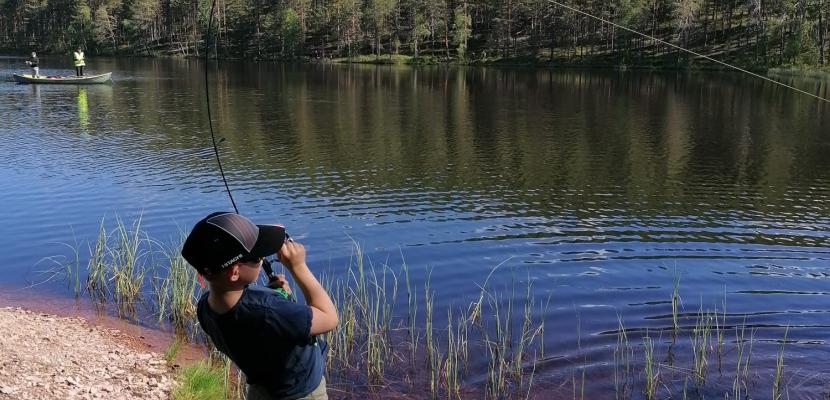
Angling day – free of charge fishing day for youth and children.

About this good practice
Angling Day is normally held on the first Saturday of the summer holidays, and every year sees the participation of around 1000 young anglers from all over Finland. At some of the locations there will be instructors from the Finnish Federation for Recreational Fishing, and at the other locations children can fish independently together with their guardian The instructors can also offer advice and tips, where needed, to help the young anglers to get going.
Angling Day lowers the threshold for fishing. It offers young people and their families the opportunity to get out in nature at good fishing sites and to get excited about nature through fishing.
Angling Day enables children from different backgrounds to learn about fishing and inspires young people to become active in nature. Many fishing sites also have built-in infrastructure to facilitate access for people with special needs.
The day is organised in cooperation with the Finnish Recreational Fishermen's Association, which also provides guidance and equipment at many sites. Local villages and fishing associations are active in providing ancillary services and events at fishing sites.
Resources needed
Based mainly on voluntary work. Metsähallitus, Parks & Wildlife Finland is a governmental organisation, and the Angling Day is included in its annual budget.
Evidence of success
Every year, the Angling Day reaches more than a thousand underage fishermen. Recreational fishing is an important welfare activity for young people. In Finland, more than 51% of minors report having been involved in recreational fishing at some point. It is therefore a major contributor to well-being and a relationship with nature for the target group.
Potential for learning or transfer
1. Connecting with nature: young people can spend time in nature, which can improve their physical and mental well-being. Being in nature reduces stress and increases feelings of happiness
2. Learning and skills: Fishing and other outdoor activities teach young people important skills such as patience, problem solving and environmental responsibility
3. Social interaction: The Angling Day offers young people the opportunity to spend time with family and friends, strengthening social relationships and a sense of community
4. Healthy lifestyles: Outdoor activities and physical activity promote healthy lifestyles, which are particularly important for the development and well-being of young people.
5. Environmental awareness: Young people learn to appreciate and protect nature, which can lead to more sustainable lifestyles in the future.
Further information
Good practice owner
You can contact the good practice owner below for more detailed information.
Lapland University of Applied Sciences

